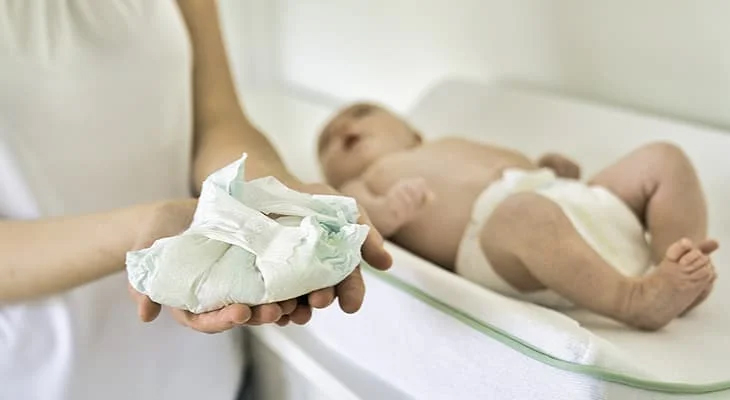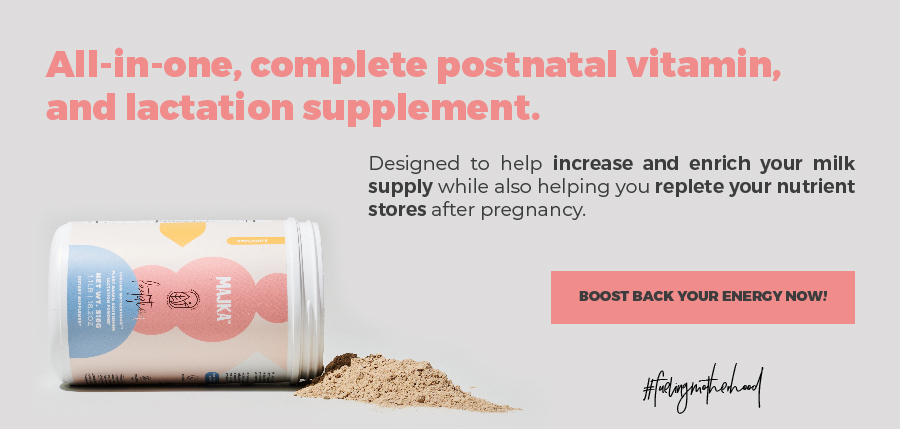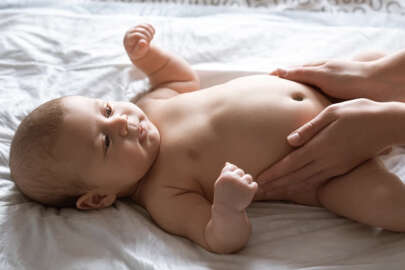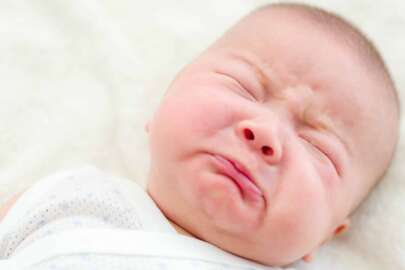
Everything I need to know about my Baby’s Diarrhea
Baby ́s bodies function in a specific way and are different from adults. While learning to take care of your baby, you may feel like you’re constantly learning about some of these differences, such as your baby having soft and loose stool and what it means.
The fact that your baby’s stool is presenting soft and loose doesn’t mean that he/she is having diarrhea. However, sometimes these changes in his/her stool may indicate so. In the following, we will tell you about how to identify and help when your baby has diarrhea.
What does diarrhea look like in a newborn?
Each baby is different and you will learn as you go how to better read your baby. It’s important to pay attention so you can be aware of any changes.
Once your baby is born, your baby’s poop will appear black and tarry for 48 hours. This is completely normal as your baby is expelling some materials that he/she has swallowed from the uterus, called meconium.
Once you begin breastfeeding, your baby’s poop will become softer and yellow. When breastfeeding, your baby’s poop can also be green from bile.
If you find mucus, blood, a bad smell, or if your baby’s poop suddenly becomes more loose this all may indicate that your baby has diarrhea.
If you are feeding your baby with formula, his/her stools may look more thick which can make it easier to distinguish between regular stool and diarrhea.
Overall when your baby has diarrhea, his/her poop will appear runny, loose, watery and be more frequent than usual and can be yellow, green or brown in color.
What are the causes of diarrhea for a baby?
Your baby may experience two types of diarrhea:
- Acute diarrhea: could be caused by changes in your diet while breastfeeding, use of antibiotics (whether your baby is ingesting them or you when breastfeeding), an infection, bacteria, virus or a change in the formula or diet such as solids.
- Recurrent diarrhea: could be caused by an allergy or intolerance such as cow’s milk allergy.
When to worry?
Keep in mind that it is always better to contact your healthcare provider regarding anything that concerns you. What we advise the most is to keep an eye on diarrhea in order to avoid dehydration, especially if your baby is under 3 months of age.
Diarrhea may cause your baby to become dehydrated, meaning that he/she doesn´t have enough water or liquids. This could be harmful for any person, but can take its course more harshly on children under 3 years of age.
Some signs of dehydration could be: your baby not peeing for more than 8 hours, peeing with a dark yellow color, dry tongue and mouth, crying with no tears; your baby seems uncomfortable or sick.
If you see signs of dehydration, it is important to call your doctor so your baby can get medical help and to avoid this situation getting worse.
What to eat when my baby has diarrhea
Each baby is different, but it may be possible that some foods in your diet are causing your baby to have sensitivities and even allergies.
If you suspect that something you are eating is causing your baby’s diarrhea, try eliminating it from your diet for a while and see if it helps.
Some common foods that tend to cause sensitivities are: lactose, caffeine, spicy foods, and gassy foods.
Keep in mind that maintaining a healthy diet while breastfeeding will help your baby to maintain a healthy development.
How to avoid and treat my baby’s diarrhea
Always remember that taking care of a baby is a big assignment and that you are doing a great job! It’s not necessary to push yourself to be perfect. Your baby having diarrhea is a common and treatable thing, so it´s not the end of the world if it happens. If you want to avoid it, here are some things to keep in mind:
- If you are breastfeeding, try to avoid eating foods that tend to have sensitive reactions in babies, such as lactose and caffeine.
- If you are feeding with formula, ask your doctor for a type that is less likely to make your baby have a sensitive reaction.
- If you are giving solids, maintain a healthy and balanced diet.
- Always keep your baby hydrated.
- Always ask your doctor before using any medication.
When your baby has diarrhea:
- If you are breastfeeding, continue to do so but in more frequent intervals. Consult your doctor about extra hydration such as Kao Electrolyte or Pedialyte between feedings.
- If your baby is having solids, continue to feed him/her and choose foods that are easily digested, such as foods that contain a lot of starch.
- If the diarrhea doesn’t stop and your baby seems dehydrated/sick, get medical attention.
In Breastfeeding 101 we hope this information has helped you to learn more about your baby’s diarrhea and things you can do to help him/her with it.
We are always happy to welcome you here and we invite you to follow all of our content in order to learn more about your baby’s health.
In the following we share with you some of the sources that made this article possible in case you want to deepen more:
- Advances in Evaluation of Chronic Diarrhea in Infants I National Library of Medicine
- Diarrhea I Cleveland Clinic
- Diarrhea (0-12 Months) I Seattle Children’s
- Diarrhea: Breastfed Infants I Atlanta’s Children’s Clinical Center, P.C.
- Diarrhea in children I Mayo Clinic
- Diarrhea in Children I MSD Manual
- Diarrhea in infants I Medline Plus
- Newborn Health: Resources for New Mothers: A Webliography I National Library of Medicine
- Stomach Capacity IN alabama public health
- When your child has diarrhea I MedlinePlus
Avery Reckers






